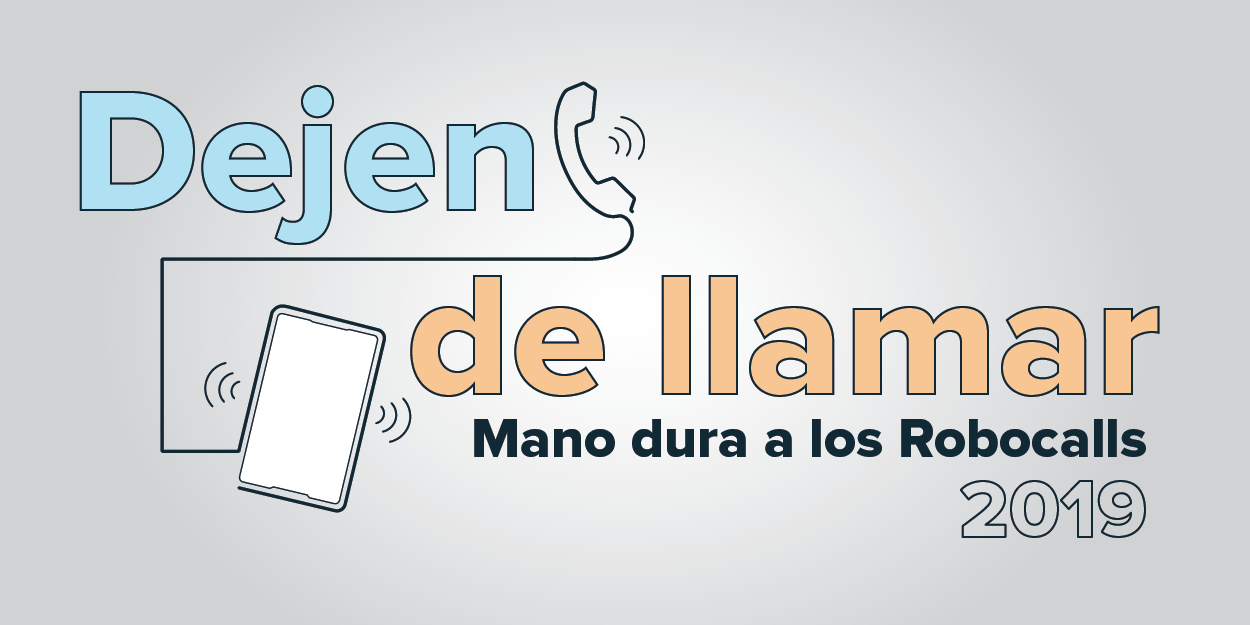
¿Estás cansado de las llamadas automáticas pre-grabadas? Nosotros también. Hoy, la FTC y nuestros colegas del ámbito federal y estatal, anunciamos la Operación Dejen de llamar, una iniciativa para perseguir a los responsables de llamadas automáticas pre-grabadas. Como parte del anuncio, la FTC tiene nuevos videos, infografías y artículos que puedes ver, leer y compartir en ftc.gov/llamadasindeseadas.
Puedes leer más información en nuestro comunicado de prensa, pero entre las acciones anunciadas hoy se incluyen las siguientes:
- Una operación con sede en Florida sobre la que la FTC alega que usó llamadas automáticas pre-grabadas en un esquema diseñado para lograr que la gente pagara para conseguir que les redujeran las tasas de interés de sus tarjetas de crédito — cosa que no sucedió.
- Un esquema para ganar dinero sobre el que la FTC alega que usó llamadas automáticas pre-grabadas y anuncios en línea para que la gente le pagara miles de dólares por “membresías del programa” para obtener grandes ganancias. Pero muy pocas personas ganaron algo de dinero con la compra del programa, y muchas perdieron toda su inversión. Alternativamente, les dijeron que hicieran más llamadas automáticas pre-grabadas para promocionar las membresías del programa y productos digitales entre otra gente.
- El responsable de una plataforma de marcado telefónico serial que resolvió los cargos que le imputaban haber operado una plataforma de marcado telefónico que utilizó para bombardear con llamadas ilegales de operaciones de telemercadeo, entre las que se incluyen llamadas a números de teléfono inscritos en el Registro Nacional No Llame, llamadas automáticas pre-grabadas y llamadas con falsa información de identificación de llamadas.
- Un telemercader del sector de energía solar que, según alega la FTC, llamó ilegalmente a la gente, lo cual incluye millones de llamadas a personas inscritas en el Registro Nacional No Llame. Los demandados llamaron a la gente para ver si estaba interesada en sistemas de energía solar, y luego transfirieron a las personas interesadas a las compañías que vendían los productos de energía solar. Los dueños de la operación han aceptado una prohibición que les impide efectuar llamadas automáticas pre-grabadas y llamar a números de teléfono inscritos en el Registro.
Entonces, ¿qué puedes hacer con respecto a las llamadas automáticas pre-grabadas? Si recibes una de estas llamadas:
- Cuelga el teléfono.
- No confíes en tu identificador de llamadas — lo pueden falsear.
- Consulta a tu proveedor de servicio telefónico sobre el bloqueo de llamadas.
- Reporta las llamadas a la FTC en donotcall.gov.
Aprende más en ftc.gov/llamadasindeseadas.

